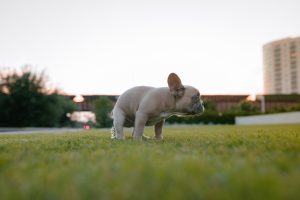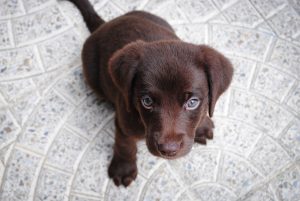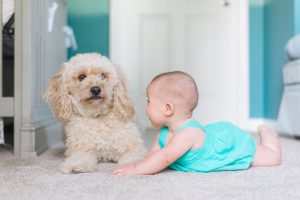Potty Training Tips for Puppy Owners

Bringing a new puppy into your home is a delightful experience, but along with the boundless joy, comes the responsibility of potty training. Teaching your puppy where and when to relieve themselves is not only essential for maintaining a clean living space but also for fostering a strong bond based on trust and communication. In this comprehensive guide, we will explore effective and compassionate potty training techniques, ensuring a smooth and accident-free transition for both you and your furry friend.
Establish a Routine
Consistency is key when it comes to potty training. Set a regular feeding schedule for your puppy and take them outside immediately after meals, upon waking, and before bedtime. Puppies usually need to relieve themselves shortly after these activities. Using the same door to go outside and taking them to the same spot in your yard each time helps them associate the area with going potty.
Positive Reinforcement
Positive reinforcement, such as praise and treats, is a powerful motivator for puppies. Whenever your puppy successfully goes potty outside, shower them with praise and offer a small treat as a reward. Positive reinforcement creates a positive association with going potty outdoors, encouraging them to repeat the behavior.
Supervise and Anticipate
Puppies have limited bladder control, especially at a young age. Supervise your puppy indoors and watch for signs like sniffing, circling, or restlessness, indicating they need to go. If you catch them in the act of going inside, interrupt them with a gentle clap and immediately take them outside. Anticipating their needs and redirecting them to the appropriate spot reinforces the outdoor potty training habit.

Use Crate Training Wisely
Crate training can be a valuable tool for potty training. Dogs instinctively avoid soiling their living space. When you cannot supervise your puppy, place them in a properly sized crate. Ensure the crate is just big enough for them to stand up, turn around, and lie down comfortably. Puppies are unlikely to soil their crate, allowing them to learn bladder control. Take them outside as soon as they are out of the crate to reinforce the outdoor potty habit.
Accidents Happen: Patience is Key
Expect accidents, especially in the early stages of potty training. Accidents are a natural part of the learning process. When accidents happen, clean the area thoroughly with an enzymatic cleaner to eliminate odors. Avoid scolding your puppy after the fact; they won’t understand the connection between the scolding and the accident. Instead, focus on reinforcing positive behaviors when they potty in the right spot.
Establish a Nighttime Routine
At night, puppies have limited bladder control, so establishing a nighttime routine is crucial. Limit access to water a couple of hours before bedtime and take your puppy outside one final time before you go to bed. Consider setting an alarm to take them out once or twice during the night, especially for very young puppies. Gradually, as they grow older, they will be able to sleep through the night without accidents.
Be Patient, Consistent, and Kind
Potty training takes time and patience. Every puppy is different, and some may learn faster than others. Consistency in your approach and kindness in your interactions are essential. Celebrate their successes, be understanding of their accidents, and provide gentle guidance. With a consistent routine, positive reinforcement, and lots of love, your puppy will learn the ropes of potty training, ensuring a clean and happy home for both of you.

Conclusion
Potty training is a fundamental aspect of a puppy’s early education, shaping their behavior and relationship with you. By establishing a routine, using positive reinforcement, supervising and anticipating their needs, incorporating crate training wisely, being patient, establishing a nighttime routine, and maintaining consistency and kindness, you pave the way for a successful and stress-free potty training experience. Remember, with time, patience, and understanding, you’ll guide your puppy to become a well-behaved and house-trained member of your family, strengthening the bond between you and ensuring a harmonious living environment for everyone. Happy training!